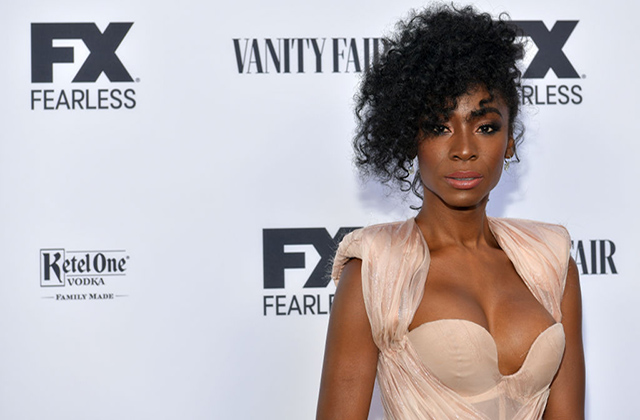Angelica Ross, the first trans woman to secure two series regular roles on television, was the guest on Deadline’s “New Hollywood” podcast, which aired Tuesday (December 17).
The actress, who played the beloved, feisty Candy Ferocity on FX’s “Pose” and is now starring in the latest "American Horror Story" franchise “American Horror Story: 1984,” recorded the episode with her rescue dog Hammer by her side. She spoke with hosts Amanda N’Duka and Dino Ray Ramos about Candy, her personal journey as a Black trans woman, the importance of organizations like her TransTech Social Enterprises and why she eventually said yes to “Pose” after turning down auditions several times.
“I knew Ryan Murphy wanted to do things right…. From top to bottom he included the community,” Ross said. “Just having people of color in the writing room, in the makeup trailer. So I immediately relaxed into the situation.”
Here are three must-listen to highlights from the interview.
Ross on making sure that the story of Black trans women never dies:
You have this kind of split story; Candy’s story ends and like you said, she has so much more story, so much more that could have happened—but we get to see so much more in Angelica Ross. Meaning we get to see this Black trans woman live and get her flowers while she’s living.
On getting to know the people behind the labels:
Actually me being trans is probably the most boring thing about me…. I feel like we get trapped in these labels and then we’re living up to what this role says I should be and do…. I think that we really have to work towards having this language that brings us together across continents, to help us come closer, but not relying on those things to give us a free pass to say “now I know who you are and what you’re all about.” Because I don’t. The only way I’ll know that is through time spent experiencing you.
On recognizing your privilege and what to do with it:
If you hold life in your body you hold privilege and you need to develop a conversation around owning your privilege, as well as how to expand your privilege. For me starting out, there’s a lot of marginalization I experienced as a Black person, just being Black. Then being Black and trans, that’s more marganization that I experienced. But I can see, but I can hear, but I can walk. There’s a lot of privilege that I hold over other people who don’t have those privileges, so for me I also have experienced what we call “cis-assuming privilege.” Which means that people assume I’m not trans so I can go to the bathroom…. To whom much is given much is expected.
Listen to the full episode:
rn
